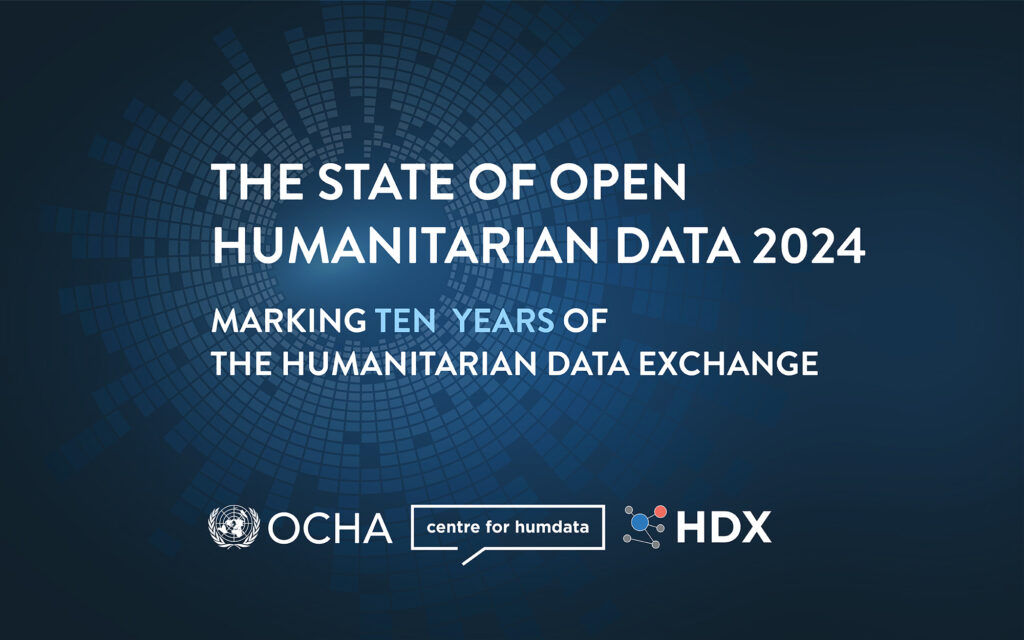Share
In 2023, the demand for humanitarian data reached a record level as the world contended with the effects of war, climate shocks, food insecurity, displacement and disease in crises ranging from Gaza to Sudan. At the same time, data availability across priority humanitarian operations remained steady.
Our insights into data availability and use come from managing the Humanitarian Data Exchange (HDX), an open platform for finding and sharing data across crises and organizations. At the start of 2024, we estimate that 70 percent of relevant, complete crisis data is available across 23 humanitarian operations, based on the analysis of the HDX Data Grids.
The State of Open Humanitarian Data contains details on the data available for each location, category and sub-category covered in the Data Grids as of 31 December 2023. It includes a country deep-dive for Colombia, which has seen significant gains in data completeness over the past five years, and it showcases the contribution of the World Food Programme, a longstanding partner of HDX. It also provides an example of how climate data is being used to predict the impact of typhoons in the Philippines and trigger anticipatory action.
Although the report covers data activity in 2023, it is published in 2024 which marks the ten year anniversary of HDX. Launched in 2014 with just 800 datasets and a dozen organizations, HDX is now an anchor in the humanitarian data ecosystem. In our piece on ‘Ten Years of HDX’, we reflect on the big shifts in humanitarian data since we first started our work and consider what the future may bring.
A priority for 2024 will be increasing access to climate impact data, which is essential for predicting the future impacts of hazards on vulnerable populations. We are also working to make key figures within the Data Grids available programmatically for use in applications, search engines and business intelligence tools.
Visit the Overview of Data Grids page on HDX for the latest status on data availability across humanitarian operations. Please be in touch with questions or comments at centrehumdata@un.org.
